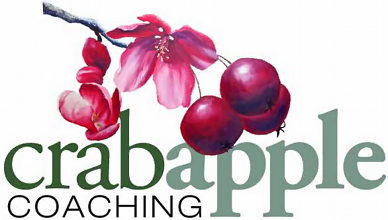 Retirement Stats, Studies, and Stuff
Retirement Stats, Studies, and Stuff
By Mariella Vigneux, MBA, ACC
Certified Professional Coach
I remember when I suddenly found myself looking for a new job. I immediately set up job interviews in the same field of work, wanting to end as quickly as possible this period of disorientation. In the first interview, I was asked why I wanted the job. It was a simple question, a question I absolutely should have anticipated. Yet I was struck dumb. Why do you want the job? I didn’t have an answer. I had to fudge my way through it. After that sorry interview, I took time off. I spent days wondering what the hell I was going to do next. And more days dreaming in the sunshine. That’s when the doubts dropped away and I discovered my fit in the world… my comfortable slippers… my euphoria.
Can you recall when you’ve been confused about the next step: what to do, when to retire, what to be when you grow up, what you’re good at, or whom to spend your life with? Confusion can take over our lives when we are going through big changes, changes that throw us into turbulent waters – like unplanned retirement, a relationship ending, a death, loss of identity, or loss of career. As horrible as it feels to be in doubt, it may help to know that doubt is a very good place to visit.
Doubt – a passionate exercise
As the playwright John Patrick Shanley said, “Doubt requires more courage than conviction does, and more energy; because conviction is a resting place and doubt is infinite—it is a passionate exercise.”
– John Patrick Shanley, Doubt: A Parable
I’ve learned that it’s better to spend time in the place of not knowing, instead of making a hasty, ill-judged decision. The passionate exercise of dancing in doubt strengthens our self-awareness. Spending time in the place of not knowing lets us explore ourselves: our strengths, needs, desires, the conditions we need to thrive, and our fit in the world. This clarity about ourselves and our ideal world allows us to discover where we will thrive – the place where we can play at what we do best.
The temptation of certainty
Being uncertain of our next step is not easy. It causes anxiety, sleeplessness and loss of self-esteem. We are highly vulnerable at this point in our life change. If we’ve lost our sense of identity and are uncertain about where we’re heading, we are prone to the inner critical voice. You’re no good, it will say, and we may start to believe it.
The temptation is to make a decision – fast! End the uncertainty. But if we choose a path before we’ve figured out what we really want and need, the danger is that we’ll choose something that won’t work out very well… and then we’re back in the turbulence again. Only we’ll feel worse, because we’ll think we failed. Twice.
Scuttling back to the familiar
William Bridges, who is well known for his work on life transitions, identifies three phases to transitions:
1. Endings – Something is ending, yet we may fight or manoeuvre to hold on to the old ways
2. The Neutral Zone – The Neutral Zone feels like a process of disintegration and indecision, where some doors lead back to the familiar; others nudge us towards a new reality, but not without sometimes debilitating feelings of emptiness.
3. Beginnings – We are beginning to see the possibilities, feel excitement and have new energy; we are forming an attachment to new ways.
He says, “The most formidable task in negotiating life transitions is weathering the Neutral Zone, a distressing protracted period of a sense of confusion, emptiness, and anxiety, where nothing feels solid.”
No fun at all! From my own personal experience and from working with clients, I’d say there is nothing neutral about the Neutral Zone. I would call it the Turbulent Zone for it wreaks a maelstrom of emotions.
Bridges warns us, though, not to “scuttle back through the door of familiarity”. We’re to stay the course, to settle into this phase of emptiness and doubt.
The fun phase
Although the Neutral Zone causes “disintegration, chaos and reintegration,” the good news is that this process leads to renewed life. Renewed life – that sounds much more hopeful than confusion, emptiness and anxiety. The disorientation of the Neutral Zone resolves itself.
Which brings us to the fun stuff… Phase 3 – Beginnings. In this phase we see possibilities, and feel excitement and become energized again. Finally, we have a clear path forward.
Surrendering in retirement
Surrendering to doubt and new ways is particularly important when retiring. Dodie Pirie, Ph.D., (C) OACCPP, and Andrey Herrema, M. Ed., in their article Navigating the Neutral Zone: The Retirement Transition, summarized their research:
In our little project, both Audrey and I learned how intensely driven many of us are to recreate our working lives in some fashion when we take those first steps. All the respondents clearly experienced what Carl Klaus calls a “continuing inability to let go … a craven desire to hang on …” (l999, p. 25). Here is what I learned: Sometimes work is so frenetic that we tend to lose contact with our inner lives — a concept developed by Melvyn Kinder in his book “Going Nowhere Fast” (1990). Work is a world where goals are pursued, often without the opportunity to reflect, (not the kind of goal setting envisioned by Cszikszentmihalyi). Kinder’s work suggests that retirement can seem like a vortex where our familiar world, the world that gave us at least a semblance of Flow, Significance and Belonging, suddenly withdraws, leaving us without any inner self knowledge or even the language to understand this new emotional terrain.
I have a really hard time surrendering to doubt. I find it difficult letting go, not knowing my path, and not controlling my world. I’m learning, though, that I have no real control anyway and, when I do let go, I reach deeper into subconscious places and find unexpected gems.
Next time I’m thrown into the turmoil of a life change, I’m going to park myself in neutral, let my subconscious take the lead, let my thinking brain have a break, and see what glorious solutions surface. If nothing else, I’ll be able to answer the simple questions, like why do you want this?
Self-coaching questions
What worked well in the past when you were thrown into the tumultuous Neutral Zone?
What would help you to sit longer with doubt, this place of not knowing?
If self-awareness is not your strong suit, how can you venture safely into an exploration of the conditions you need to really thrive?

Doubt and the Neutral/Turbulent Zone sound very scary to me. I remember when I returned from my first one-year contract position, just after graduation, with no job. Facing the question, “what are you doing?” at a party left me in tears.
Of course, I was also just reflecting on a wedding I just attended, and wishing I’d asked fewer of the “what are you up to?” questions, of nieces and nephews, and more of the “what are you passionate about?” or “what’s an unusual experience you had?” sort.
The ‘what are you up to?’ question is open-ended and shows curiosity (and is much better than just talking about yourself), but it could be improved upon, as you say. I think as we get older we want to get real answers to important questions, like ‘what are you passionate about?’ Do you remember how our uncle, Father Tom, used to ask a question that opened people up and got them talking? And he’d sit back and listen, like a big, old teddy bear. I have tried to remember what he used to ask. He created such a comfortable, warm atmosphere.
Mariella, thank you. This is a good message for reflection and resources.
Glad you liked it, Bret. Good to hear from you.
Sometimes beginning with an ending means grief and other times, celebration. The reactions to retirement run the gamut.
I like how you put that, Donna. If only we could see celebration in the grief-endings sooner than later.
As I read the beginning of your article I was reminded of the work of William Bridges. I’m so glad you have written about it in this newsletter. The Neutral(!) Zone is one of the most important places we can ever go, and also one of the most difficult.
What a name, eh… The Neutral Zone. What would be a better name, I wonder…